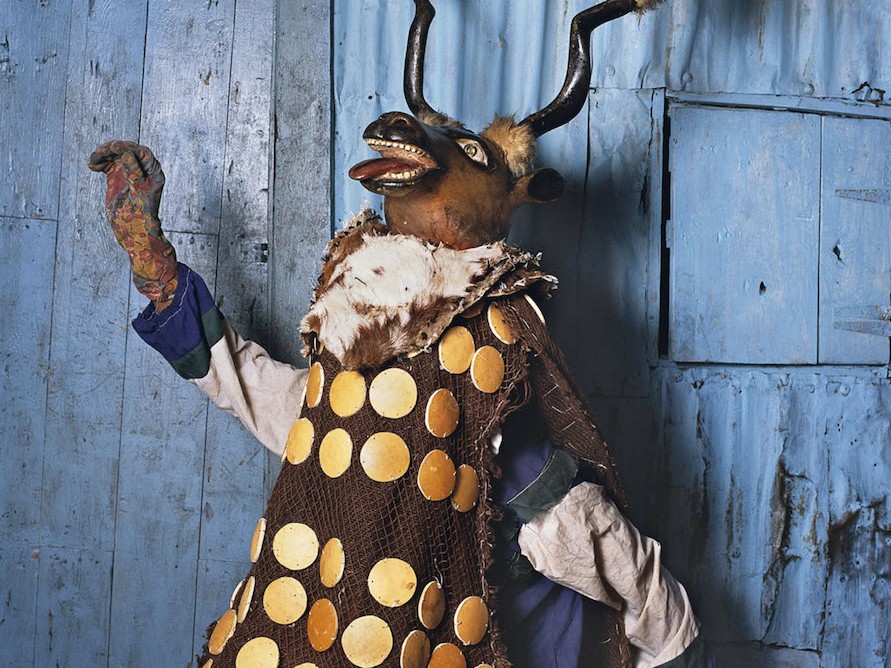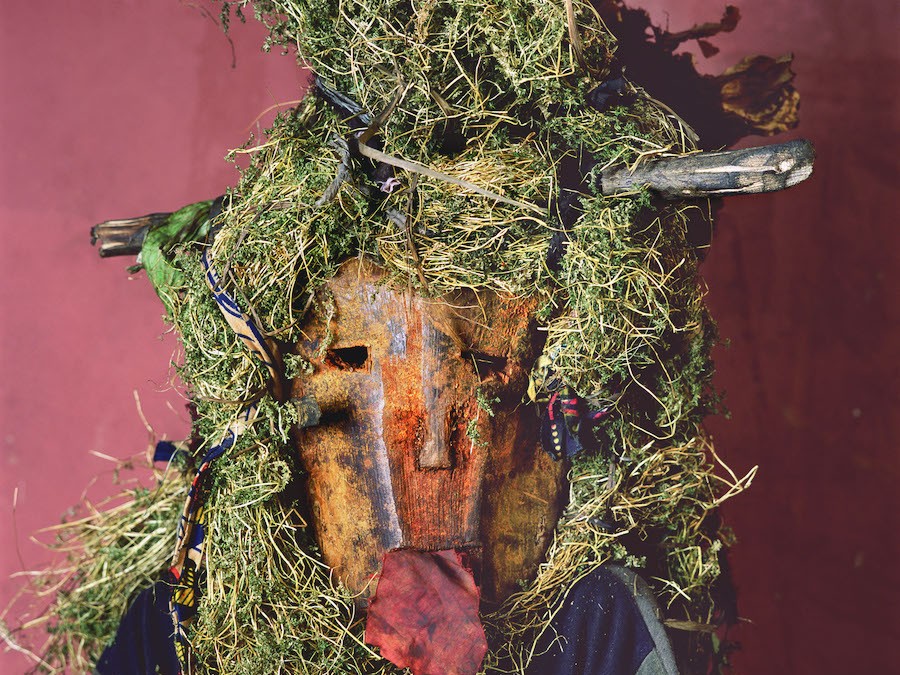Share this!
A Guide to Zulu Culture, Traditions, and Cuisine
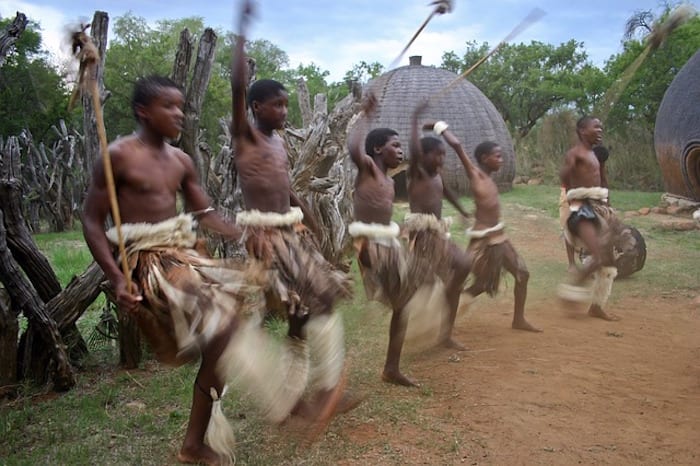
Planning a trip to South Africa? Make sure to learn about the Zulu people native to the South African region. Understand the culture of the people to enrich your Africa holiday with an immersive experience. Get up close with the local communities, participate in their traditions, and enjoy dancing the Zulu way!
So here is a lowdown on the famous Zulu people of South Africa who have the unique distinction of having featured in the pages of history for their military achievements.
Zulus – the warrior tribe of Kwa-Zulu Natal
Known for their military exploits in the 19th century and their long drawn-out war against the British supremacy, the Zulus are the soul of South Africa. Their roots lie in the Nguni community of Central Africa that migrated southwards along the East Coast. They merged with local communities to be a part of the largest ethnic group of South Africa, the Bantus. This built the foundations of a powerful kingdom – the Kwa-Zulu Natal or “homeland of the Zulu people.” The Zulus singularly changed the history and cultural dominance of South Africa. Even as several ethnic groups across Africa, foreigners from Europe and India chose to make the region their home, the Zulu remain the main ethnic people.
Today, although the Zulus live mostly in the Kwa-Zulu Natal, you will come across their presence in other parts of Africa like Zimbabwe, Tanzania and Zambia. So expect to hear their isiZulu dialect during your Africa excursions. Invariably your safari guide or driver will be a Zulu. So you must know that the Zulu people take pride in their distinctive heritage, despite close ethnic, linguistic and cultural ties with the Swazi and Xhos tribes. After all, they are the “people of the heavens”!
Culture of the Zulu people
The Zulus like to assert their might, beginning with the exercise of authority within their households. Men play the dominant role by taking care of the cattle, their wives, and the family; while the women take care of children, the hearth and the all-important beer-making. While men stick to the tradition of sitting on a hide or the shield as a mark of pride in their warfare ability, boys are introduced to their warrior heritage with stick-fighting at an early age.
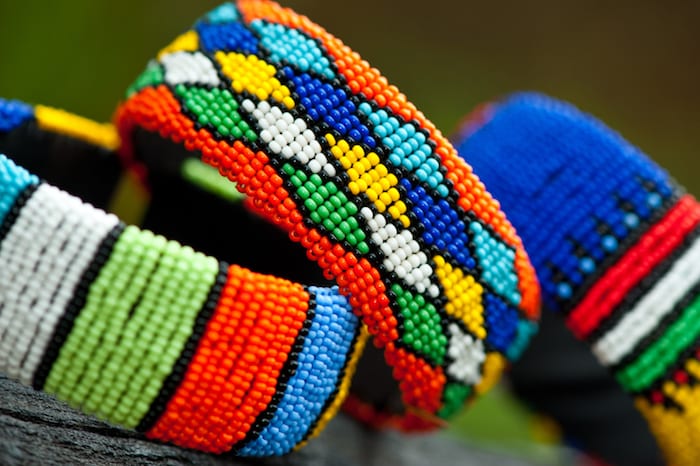
The Zulu beadwork is an essential part of their cultural fabric. Beads are used as a form of communication and symbolism, with varying shapes and colors to connote different meanings. For instance, the direction of the tip in a triangular bead signifies whether a boy or girl is married. So a married woman will wear beads fashioned with two triangles put together in a diamond shape, the fertility symbol of the Zulu community. Whereas married men wear beadwork with the two tips of triangles to form an hourglass shape. Beads are of seven colors, with each color representing emotions, spirituality and status in society. So you can expect to see single women adorning beadwork in white, representing purity; while a Zulu male wearing green beadwork shows contentment. The use of colour codes and shapes of beadwork are unique to the Zulu culture and societal norms. So the next time you are in a local market, think twice before buying a piece of beadwork. You may pick the wrong one and have men chasing you thinking you are available!
Zulu dances, a reflection of societal beliefs and warrior traditions
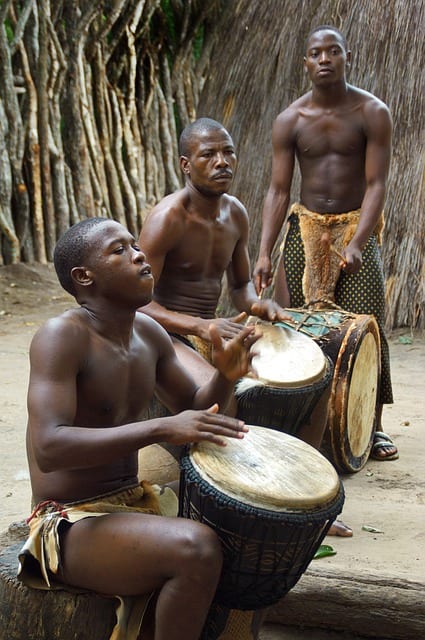
Drums are an essential part of Zulu celebrations, usually accompanied by dancing and chanting. The ingungu drum finds use in every traditional ritual and celebration, be it the onset of womanhood or a marriage ceremony.
The dances in Zulu culture are thus found to celebrate significant moments of life. Every special occasion has a dance dedicated to mark the moment. The hunting dance using the spear aims at providing warriors courage before they venture out to hunt. Another dance uses a small shield to mark military unity amongst the men and is performed only on royal occasions. The Indlamu is another traditional war dance featuring two dancers stomping hard to the beats of drums, carried out at weddings. The Reed dance is a unique annual event where only unmarried girls dance holding a long reed above their heads.
Zulu traditions – an integral fabric of the Zulu society
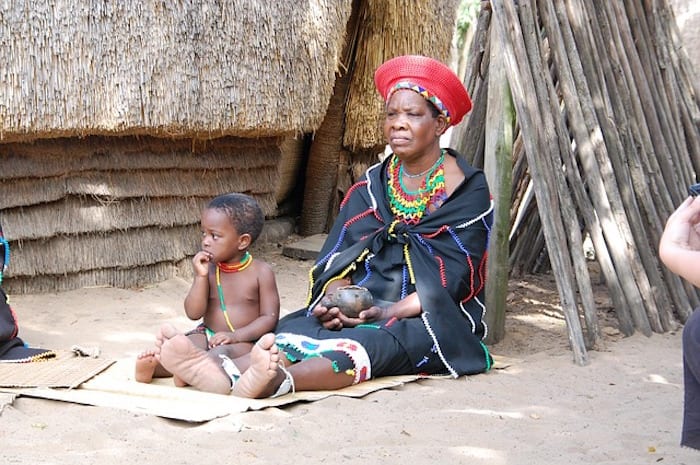
As in any ancient culture, the Zulu culture is also based on spirituality and the power of ancestors. They are remembered throughout the passage of life – at birth, puberty, marriage and death. The Zulus have several rituals that pay homage to the soul of the departed and invoke their blessings. Herbs and animal sacrifice are commonly used to appease ancestral spirits.
Social disputes take on a warrior mode within the Zulu community. Duels are fought until the flow of blood decides the winner. This is yet another way that the Zulu people keep their warrior legacy
The Zulu attire – an expression of traditionalism and sustainability
The Zulu people like to dress minimally, just as they continue to live simple lives even in the 21st century. Their choice of attire reflects their traditional ethos as well as their dependence upon nature. The attire of women symbolizes the age, marital status and eligibility of a girl. While a young girl sports short hair and wears short skirts of grass and beaded strings to show her single status and eligibility, the colors of the beads take on different hues as she progresses through womanhood and engagement. Once engaged, the Zulu woman covers her body and grows her hair as a mark of respect to her future in-laws, exhibiting her status of being engaged. Married women cover themselves with heavy knee-length cowhide skirts and wear hats.
Men use their attire and accessories to indicate their military prowess. This usually includes a warrior headband, worn only by married men. Regular attire uses animal skin and feather to cover various parts of the body, albeit minimally. The skin used is symbolic of the social status of the Zulu man. For instance, the skin of a leopard is used only by the royal family or tribal heads. While the amambatha covers shoulders; the ibheshu, injobo and isinene cover the lower half.
Zulu cuisine
The cuisine of the Zulu tribe mirrors their rich history and culture. Despite their lives in the midst of wilderness and wildlife, the Zulus usually have vegetarian food comprising of grains and vegetables. Animals like the ox are only slaughtered as sacrifice on special occasions. Maize and sorghum based pap traditional African porridge, beer and fermented milk; are integral to every Zulu household. Food portions of meat dishes mirror the age and social status of the men.




